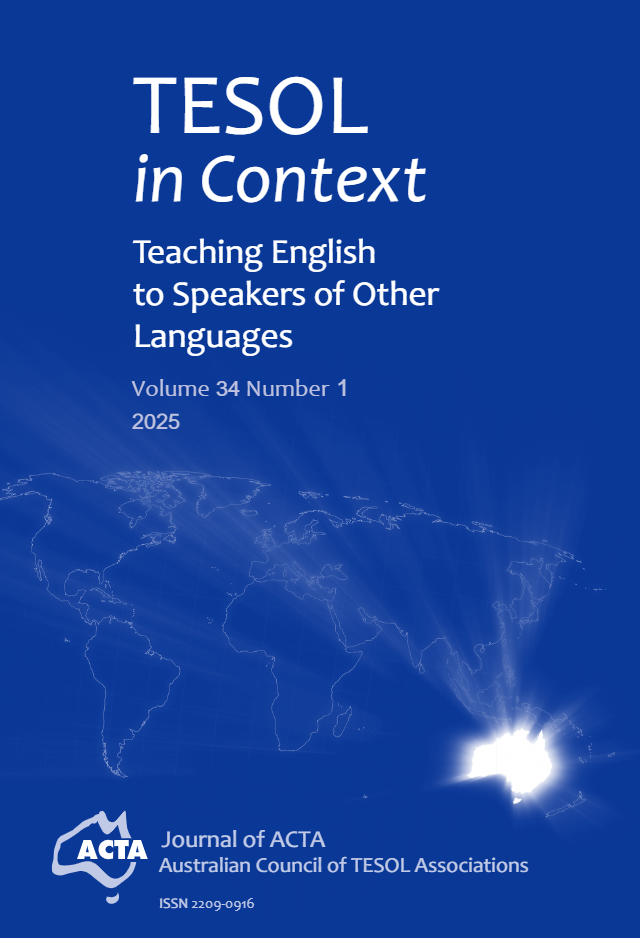Book Review: Reynolds et al. (Eds.). (2024). Decentering Advocacy in English Language Teaching: Global Perspectives and Local Practices. University of Michigan Press.
DOI:
https://doi.org/10.21153/tesol2025vol34no1art2197Keywords:
advocacy, English language teaching (ELT), critical language pedagogy, Language Teacher EducationAbstract
In recent decades, along with the emerging inquiry into the social and political dimensions of language education (e.g., Crookes, 2022), advocacy in English language teaching (ELT) – efforts on behalf of English language learners to promote social justice language education (Linville & Whiting, 2019) – has received growing attention. While there is growing global interest in ELT advocacy, the majority of published studies are situated within the Global North (e.g., United States, Canada, United Kingdom, Australia); advocacy research in postcolonial and/or underrepresented regions remains limited (Guerrero Nieto, 2020). Decentering advocacy in English language teaching: Global perspectives and local practices contributes to this body of work through the narratives of advocacy efforts within 11 diverse geopolitical and educational contexts in Africa (Nigeria, Cameroon), Central America (Belize, El Salvador), Asia (Vietnam, Laos), Middle East (Türkiye, Israeli and Palestinian Territories), and South America (Paraguay, Uruguay), each documented and reflected upon by the advocates themselves. It serves as a valuable resource for educational professionals working within the space of ELT advocacy, or students and researchers learning about current ELT advocacy efforts in the global context.
Downloads
Published
Issue
Section
License
Copyright (c) 2025 TESOL in Context

This work is licensed under a Creative Commons Attribution-ShareAlike 4.0 International License.






